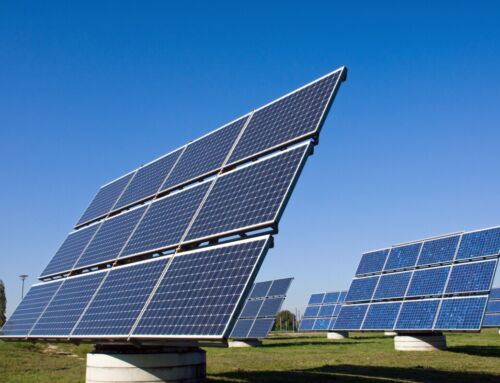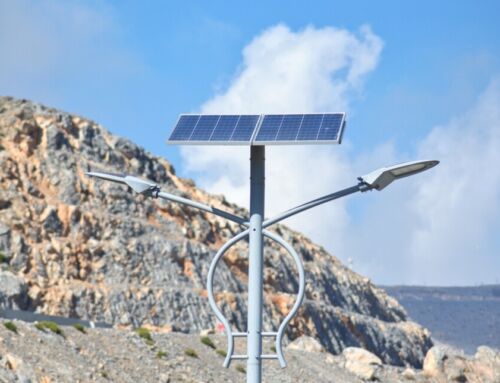Understanding the Voltage of Solar Panels
Start your solar journey now! Power your home with clean, renewable energy and unlock the savings potential. Get Your Free Quote at NEW SOLAR QUOTE
When considering solar energy, one question often arises: what is the typical voltage of solar panels? Most residential solar panels operate at around 30 to 40 volts. This voltage range is crucial because it directly impacts how efficiently your solar system converts sunlight into usable electricity. Understanding this can help you make informed decisions about your solar setup. At New Solar Quote, we recognize that every home is unique.
Therefore, knowing the voltage of solar panels can guide you in selecting the right system for your needs. Whether you’re looking to power your home or reduce energy bills, we can help you find the perfect solar solution tailored to your specific requirements. The voltage of solar panels is not just a number; it plays a significant role in your overall energy efficiency.
Higher voltage panels can transmit electricity over longer distances with less energy loss. This means that if you have a larger property, you might benefit from panels that operate at a higher voltage. Moreover, understanding this can help you optimize your solar energy system for maximum performance. At New Solar Quote, we provide detailed information about different solar panel options. Our team can assist you in choosing panels that match your voltage needs and energy goals. We aim to simplify the process, ensuring you get the most out of your solar investment. With our expertise, you can confidently navigate the world of solar energy.
How Does the Voltage of Solar Panels Affect Energy Production?
Have you ever wondered how the voltage of solar panels impacts energy production? It’s a crucial factor that can determine how efficiently your solar system operates. Higher voltage panels can produce more energy, especially in low-light conditions. This means you can generate more power even on cloudy days, maximizing your investment. At New Solar Quote, we understand that every home is unique. That’s why we help you find the right solar panel voltage for your specific needs. Our experts guide you through the options available, ensuring you choose a system that optimizes energy production. With the right voltage of solar panels, you can enjoy greater efficiency and savings on your energy bills.
Understanding the voltage of solar panels is essential for anyone considering solar energy. Higher voltage systems can lead to less energy loss during transmission. This means more of the energy generated reaches your home. Additionally, they can be more efficient in converting sunlight into usable electricity, especially in larger installations. At New Solar Quote, we simplify the process for you. Our team analyzes your energy needs and recommends the best solar panel voltage options. We ensure you get a system tailored to your home’s requirements. This personalized approach helps you maximize energy production and achieve your sustainability goals.
What Factors Influence the Voltage Output of Solar Panels?
Have you ever wondered what influences the voltage of solar panels? It’s a fascinating topic! The voltage output of solar panels can vary based on several factors. Understanding these factors can help you make informed decisions about your solar energy system. First, the type of solar panel plays a crucial role. Different technologies, like monocrystalline and polycrystalline, have varying voltage outputs. Additionally, the size and number of cells in a panel can impact its overall voltage. Larger panels with more cells typically produce higher voltages, which can be beneficial for your energy needs.
Environmental conditions also matter. Temperature, sunlight intensity, and shading can all affect the voltage of solar panels. For instance, higher temperatures can reduce voltage output. At New Solar Quote, we help you navigate these factors. Our team can guide you in selecting the right solar panels tailored to your specific needs. Another important factor is the configuration of your solar panel system. Series and parallel connections can alter the voltage output. In a series connection, the voltages add up, while in a parallel setup, the voltage remains the same but increases the current.
Understanding these configurations can optimize your system’s performance. Moreover, the inverter you choose can influence the voltage of solar panels. Inverters convert the direct current (DC) from the panels into alternating current (AC) for your home. Selecting the right inverter ensures that you maximize the voltage output, enhancing your energy efficiency. At New Solar Quote, we provide personalized consultations to help you understand these technical aspects. Our experts can assess your unique situation and recommend solutions that fit your energy needs perfectly. This way, you can harness the full potential of your solar energy system.

Ready to take the next step? Discover how solar energy can elevate your home and reduce those energy bills. Request a Free Solar Estimate at NEW SOLAR QUOTE
How Can New Solar Quote Help You Choose the Right Voltage for Your Needs?
Choosing the right voltage of solar panels can feel overwhelming. But it doesn’t have to be! New Solar Quote is here to simplify the process. They help you understand your energy needs and match them with the perfect solar solution. This way, you can make an informed decision that suits your lifestyle. When you visit New Solar Quote, you’ll find a wealth of information. They break down the voltage of solar panels into easy-to-understand terms. Plus, their team is ready to answer your questions.
This personalized approach ensures you get the best fit for your energy requirements. With New Solar Quote, you can explore various options tailored to your home. They consider factors like your energy consumption and local climate. This means you’ll not only choose the right voltage of solar panels but also maximize your investment. So, why wait? Discover how they can help you today! Understanding the voltage of solar panels is crucial for efficiency. New Solar Quote provides insights into how different voltages affect performance.
They guide you through the options, ensuring you select the best system for your needs. Their user-friendly platform allows you to compare various solar panel voltages easily. You can see how each option aligns with your energy goals. This clarity helps you make a confident choice without feeling lost in technical jargon. Additionally, New Solar Quote connects you with local installers. This means you can get expert advice tailored to your specific situation. With their help, finding the right voltage of solar panels becomes a breeze.
What Are the Common Voltage Ratings for Different Types of Solar Panels?
When diving into the world of solar energy, one question often arises: What is the typical voltage of solar panels? Understanding the voltage of solar panels is crucial for anyone considering solar energy. Different types of solar panels come with varying voltage ratings, which can impact your energy system’s efficiency and compatibility. Common voltage ratings for solar panels typically range from 12V to 48V. Standard residential panels usually operate at around 24V. However, higher voltage systems, like those used in commercial applications, can reach up to 600V.
At New Solar Quote, we help you navigate these options. We tailor solutions to fit your specific energy needs, ensuring you choose the right voltage for your setup. Choosing the right voltage of solar panels is essential for maximizing your energy output.
Higher voltage systems can transmit electricity more efficiently over long distances. This means less energy loss and more savings on your energy bills. At New Solar Quote, we provide expert guidance on selecting the ideal voltage for your home or business. We consider factors like your energy consumption and system design to ensure optimal performance. Additionally, understanding the voltage of solar panels helps in selecting compatible components, such as inverters and batteries. Mismatched voltages can lead to inefficiencies or even system failures. Our team at New Solar Quote is dedicated to helping you avoid these pitfalls. We offer personalized consultations to assess your unique energy needs and recommend the best solar panel voltage for your situation.
How Does the Voltage of Solar Panels Impact System Compatibility?
Have you ever wondered how the voltage of solar panels affects your entire solar energy system? Understanding this can make a big difference in your setup. The voltage of solar panels plays a crucial role in ensuring compatibility with inverters and batteries. If the voltage is too high or too low, it can lead to inefficiencies or even system failures. At New Solar Quote, we help you navigate these complexities. Our team can guide you in selecting the right solar panels that match your energy needs. We ensure that the voltage of solar panels aligns perfectly with your system components. This way, you can maximize energy production and efficiency, making your investment worthwhile.
Choosing the right voltage of solar panels is essential for optimal performance. Higher voltage panels can be more efficient, allowing for fewer panels to produce the same amount of energy. However, they must be compatible with your inverter’s specifications. If they aren’t, you could face issues like energy loss or equipment damage. New Solar Quote simplifies this process for you. We analyze your energy requirements and recommend solar panels with the ideal voltage. Our expertise ensures that your system operates smoothly, maximizing your energy output. With our help, you can make informed decisions that lead to a successful solar installation.
What Should You Consider When Evaluating the Voltage of Solar Panels for Your Home?
When considering solar panels for your home, the voltage of solar panels plays a crucial role. It affects how much energy your system can produce and how efficiently it operates. Higher voltage panels can deliver more power, but they may also require specific equipment. So, what should you keep in mind? First, think about your energy needs. A higher voltage system might be ideal for larger homes or those with high energy consumption. However, if your needs are modest, a lower voltage option could suffice. New Solar Quote can help you evaluate your options. They provide tailored recommendations based on your unique requirements. This way, you can make an informed decision that fits your lifestyle.
Additionally, consider the compatibility of your existing electrical system. The voltage of solar panels must align with your home’s wiring and inverter. Mismatched systems can lead to inefficiencies or even damage. New Solar Quote can guide you through this process, ensuring you choose panels that work seamlessly with your setup. They simplify the technical aspects, making it easier for you to understand your options. Lastly, think about future expansion.
If you plan to add more panels later, starting with a higher voltage system might be beneficial. This flexibility allows you to scale your energy production as your needs grow. New Solar Quote offers insights into future-proofing your solar investment, helping you choose the right voltage of solar panels today for a sustainable tomorrow.
Take action today! Save money and protect the planet by going solar. Schedule your no-cost consultation now. Book Your Free Consultation at NEW SOLAR QUOTE
Want to see all your options? Head to FREE SOLAR QUOTES for a closer look at our solar offers.





